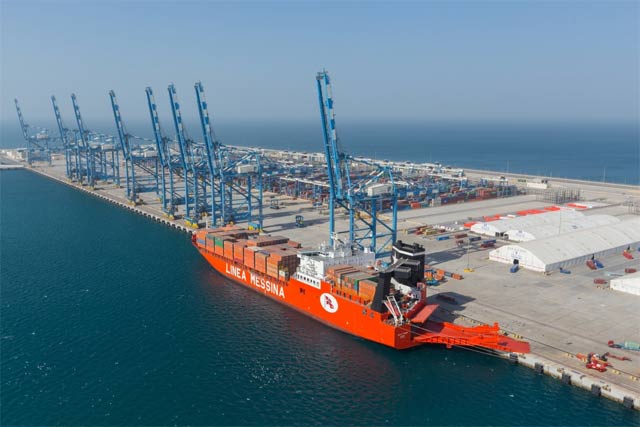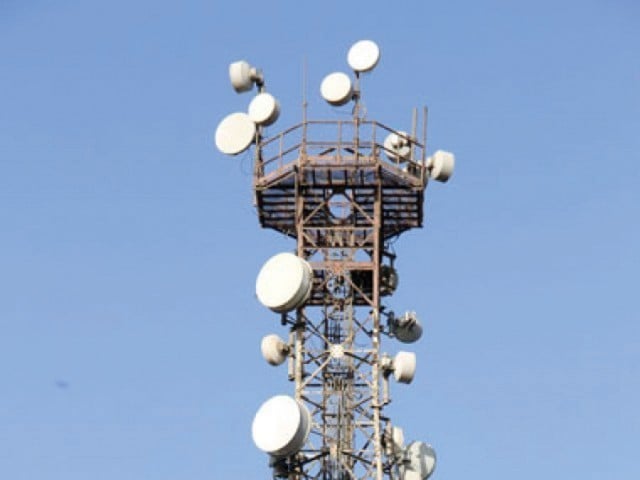Back in Black: Spain and Portugal High Voltage Power Outage with AC/DC
On April 28, 2025, Spain and Portugal were plunged into darkness in one of the largest blackouts in their history. What began as a sudden failure in the power grid rippled quickly across both nations, exposing vulnerabilities in infrastructure, straining economies

On April 28, 2025, Spain and Portugal were plunged into darkness in one of the largest blackouts in their history. What began as a sudden failure in the power grid rippled quickly across both nations, exposing vulnerabilities in infrastructure, straining economies, and reminding the world of the delicate balance between progress and resilience.
The Blackout as It Unfolded
At approximately midday, key sections of the Spanish and Portuguese national power grids collapsed without warning. In less than ten seconds, electricity demand dropped by over 60% in Spain. Metro systems ground to a halt, airports faced instant chaos, communication networks failed, and financial transactions were suspended.
Even parts of southern France briefly reported outages, showcasing the deeply interconnected nature of Europe's power systems.
Authorities ruled out cyberattacks or extreme weather as causes, instead pointing towards a failure linked to high solar production volatility and potential instability in interconnectors between grids.
Probable Causes
1. Atmospheric Phenomena (Solar Radiation/Geomagnetic Effects)
- Early on, some meteorologists and commentators suggested that solar storms or atmospheric ionization events (linked to solar radiation) might have interfered with high-voltage transmission lines.
- Why? Because extreme solar activity can create geomagnetic currents that destabilize grids by overloading transformers.
- However, Spain’s meteorological agency (AEMET) and experts like Roberto Brasero strongly denied this possibility. There was no unusual solar or atmospheric event recorded over the Iberian Peninsula that day.
2. Grid Instability from Renewable Energy Volatility
- Spain and Portugal rely heavily on solar and wind power.
- On very sunny, high-production days, too much solar electricity can flood the grid quickly.
- If this is not perfectly balanced with demand, voltage and frequency can swing dangerously — causing automatic disconnections to protect the system.
- This is now considered the most likely cause: a sudden imbalance due to solar energy surges not being absorbed fast enough.
3. Transmission Network Failures (Interconnectors)
- Spain, Portugal, and France are connected by cross-border high-voltage cables.
- If one line trips (for example, because of maintenance issues, overloads, or technical faults), it can cause a domino effect — a cascading failure where multiple regions lose synchronization.
- There were reports that one of the Spain-France interconnectors may have failed briefly during the blackout.
4. Human Error or Equipment Failure
- Grid operators constantly adjust energy flows minute-by-minute.
- A mistake in system balancing, a malfunctioning substation, or a software error could cause a chain reaction leading to a full blackout.
- This cannot be ruled out yet — investigations are still ongoing.
5. Cyberattack (Ruled Out)
- Authorities immediately investigated whether hackers caused the disruption.
- Within 24 hours, Spanish Energy Minister Teresa Ribera officially ruled out any cyberattack based on the evidence.
- No suspicious activities were detected in the energy control systems.
Sector-Wise Impacts
Transportation:
- Metro networks in Madrid, Barcelona, Lisbon, and Porto shut down completely.
- Air traffic was severely delayed; Madrid-Barajas Airport reported over 300 flights impacted.
- Road traffic lights failed, causing dangerous congestion and a spike in accidents.
Industry and Manufacturing:
- Factories across Andalusia and Catalonia reported major stoppages.
- Damage to sensitive industrial equipment due to sudden shutdowns could take weeks and cost millions.
Banking and Financial Services:
- ATM networks were down.
- Electronic banking and card payments failed, creating instant liquidity issues for small businesses and consumers.
Retail and Services:
- Supermarkets closed due to security concerns and refrigeration failures.
- Restaurants and cafes faced food spoilage.
- Tourism — a crucial sector — saw hotels struggling without basic utilities, leading to canceled bookings.
Energy and Utilities:
- Oil refineries, especially near Cádiz and Sines (Portugal), suffered abrupt halts; reactivation processes could take days or weeks.
- Renewable energy output — primarily solar and wind — could not be stabilized quickly, revealing gaps in grid balancing capacity.
Daily Life:
- Millions were left without internet, mobile coverage, or access to news.
- In rural areas, water supply interruptions occurred because of electric water pumps being offline.
- Hospitals switched to emergency generators, but non-critical surgeries were postponed.
Broader Economic Impact
The blackout is estimated to have caused an immediate €1.6 billion hit to Spain’s GDP (~0.1%) and a €400 million impact on Portugal. Some industries could face longer-term losses depending on the damage assessment and consumer confidence.
More worryingly, it exposed how unprepared both nations are for handling sudden failures in a grid dominated by renewable but volatile sources. Calls for investing in battery storage, better grid resilience, and decentralized backup solutions are growing louder.
Tourism Industry Under Pressure
Spain: Overtourism and Housing Crisis
Spain welcomed a record 94 million tourists in 2024. However, this surge has intensified housing shortages, especially in cities like Barcelona and Madrid. Residents have protested against the proliferation of short-term rentals, which they blame for skyrocketing rents and displacement of locals. In response, Barcelona plans to phase out all short-term rental licenses by 2028. Additionally, Catalonia has doubled its tourist tax, allocating a portion of the revenue to fund affordable housing initiatives .
Portugal: Balancing Growth and Sustainability
Portugal's tourism sector is projected to grow by 9% in 2025, with expectations of hosting 33 million tourists. While this growth boosts the economy, it also raises concerns about environmental sustainability and housing affordability in popular destinations like Lisbon and Porto. The government is exploring measures to ensure that tourism development does not compromise local communities' quality of life .
Spain’s Economic Performance since 2024
Growth Metrics:
- GDP Growth: Spain's economy grew by 3.2% in 2024, outperforming major European peers like Germany and France.
- Inflation: Headline inflation decreased, projected to reach 2.0% by 2026 as underlying price pressures moderate.
- Unemployment: The labor market stabilized with increased wages and reduced unemployment, though youth unemployment remains high.
Key Drivers:
- Tourism: Record-breaking tourism significantly contributed to GDP growth.
- Renewable Energy: Over 50% of domestic energy production now comes from renewables, reducing electricity costs.
- EU Recovery Funds: Effective utilization of EU recovery funds bolstered public investment.
Spain's equity market, led by the IBEX 35, outperformed all major European indices in Q1 2025.
📈 IBEX 35: Europe’s Top Performer
- Q1 2025 Return: The IBEX 35 surged by 13.29% in the first quarter, outpacing Germany’s DAX (+11.32%) and France’s CAC 40 (+5.55%).
- Year-to-Date Performance: As of late April, the IBEX 35 has gained 16.18%, reaching levels not seen since 2008.
💹 Key Drivers Behind the Rally
- Banking Sector Boom: Spanish banks led the charge, with Banco Santander and BBVA posting strong Q1 profits. Banco Santander's shares rose by 8% over the past week, contributing to a 35.1% increase over the past year.
- Economic Growth: Spain's GDP expanded by 2.8% in Q1 2025 compared to the same quarter the previous year, signaling robust economic health. e: Easing trade tensions between the U.S. and China, along with positive corporate earnings, bolstered investor sentiment across Europe.
🏦 Sector Highlights
- Financials: The financial sector led gains, with CaixaBank's stock up 41.77% year-to-date. Banco Santander has become the most valuable bank in the European Union by market capitalization. In March 2025, its market value surpassed €100 billion, marking the first time in nearly a decade that an EU-based bank reached this milestone.
- Industrials: Companies like Ferrovial saw significant stock appreciation, reflecting strength in infrastructure and construction.
🏛️ Policy Initiatives
Housing Policies:
- Spain plans to invest approximately €1.3 billion of EU funds over the next decade to boost the industrial construction of social housing, aiming to create 15,000 new homes annually.
- The government is also implementing rent controls, limiting short-term tourist rentals, and encouraging the growth of social housing, which currently represents a mere 3% of total housing stock.
Labor Market Reforms:
- Reforms aimed at increasing flexibility and reducing unemployment have shown positive results.
🏅 Sports Achievements
Olympics 2024:
- Spain secured 18 medals at the Paris 2024 Olympics, including 5 golds, 4 silvers, and 9 bronzes, ranking 15th overall.
Football:
- The national team won the Euro 2024, breaking records with ten different goal-scorers.
Tennis:
- Carlos Alcaraz won Wimbledon 2024, contributing to Spain being named the best sporting nation in July 2024.
🌊 Valencia Flood Incident (October 2024)
Overview:
- On October 29, 2024, Valencia experienced catastrophic flash floods due to a high-altitude isolated depression (DANA), bringing over a year's worth of rain in just eight hours.
- The disaster resulted in over 220 fatalities, with many individuals caught in their vehicles or on ground floors of buildings as waters rapidly rose.
Impact:
- Thousands were left without basic necessities, and significant property damage occurred.
- The disaster prompted the government to deploy 15,000 soldiers for relief efforts and announce a €10.6 billion relief package.

A Personal Connection: Tracing Cultural Roots
For me personally, this event resonated not just as a traveler but as someone tied deeply to Iberian history.
- In 2018, I traveled across Spain — from the Moorish wonders of Andalusia to the Gothic grandeur of Barcelona.
- In 2022, I explored Portugal, feeling the seafaring spirit of Lisbon and Porto that once connected Europe and India.
- In 2024, I returned to Spain, witnessing firsthand the vibrancy, resilience, and beauty that define the Spanish soul.
Being born in Calicut (Kozhikode), India, I feel a profound link to Portugal especially — for it was here that Vasco da Gama landed in 1498, changing the course of history forever. His arrival marked the beginning of a centuries-old cultural and economic exchange between India and Europe.
Today, walking the ancient quarters of Lisbon or the sun-drenched coast of Andalusia, the echoes of that shared history — trade, exploration, fusion of cultures — are unmistakable.
What This Means Going Forward
This blackout is not merely a technical fault — it’s a warning.
As Spain and Portugal lead Europe's energy transition with renewable energy (both have over 40% renewable penetration now), they must invest equally in grid stabilization, cybersecurity, and disaster preparedness. Otherwise, moments of darkness could multiply, straining their economies and risking public trust.
Yet, just as these nations rose from conquests, wars, and explorations to shape the world, they have the resilience to learn, adapt, and shine even brighter in the years ahead.











